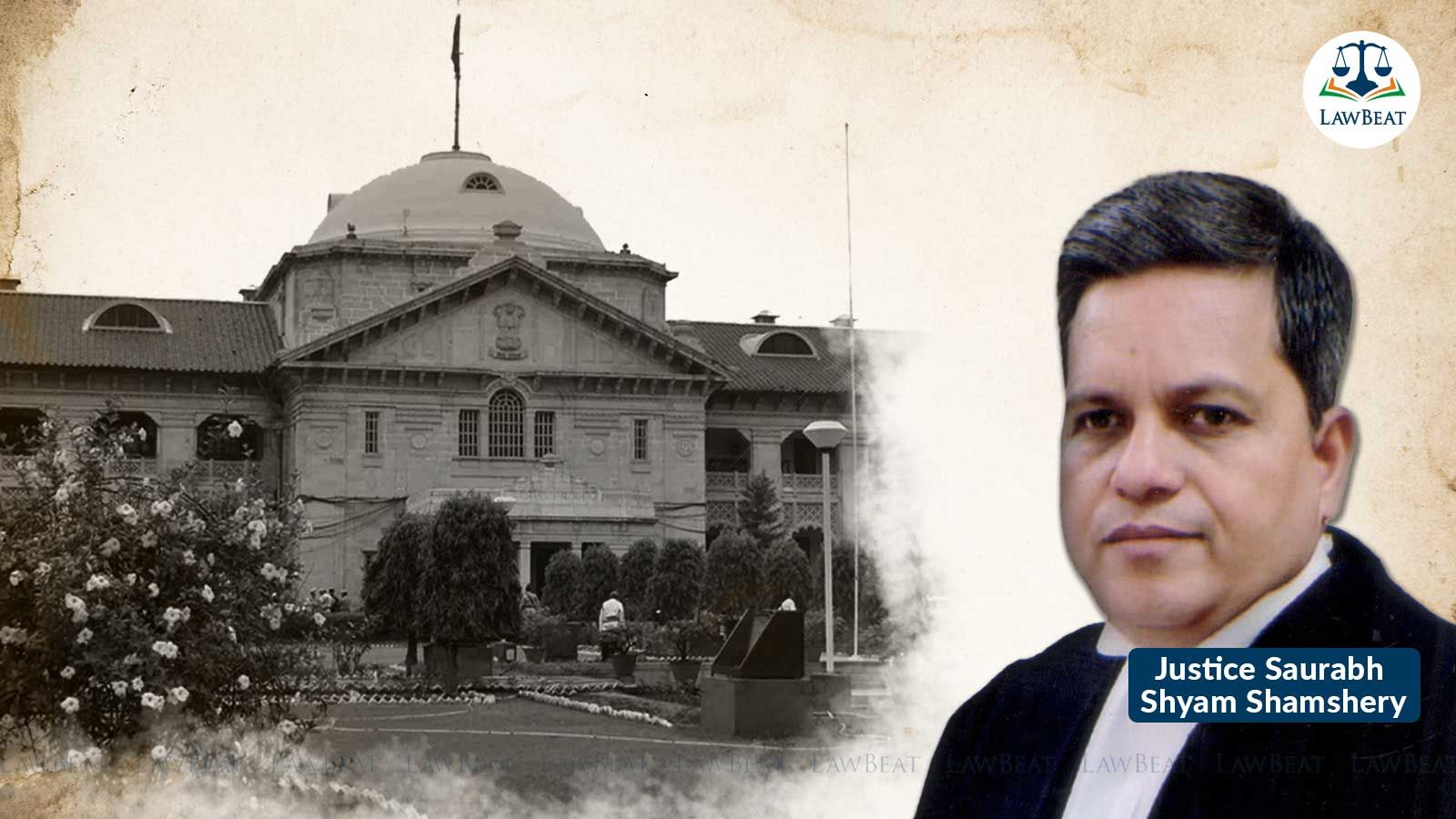If Minor and Accused are Married, Physical Relationship Between Them will be Presumed: Allahabad High Court

Court highlighted that Section 114 of Evidence Act provides that a court may presume existence of certain facts which includes human conduct likely to have happened.
The Allahabad High Court on Wednesday observed that "if there is a statement of a minor victim that either she and the accused have solemnized marriage or stayed as husband and wife, then there will be a presumption that during their stay together they had physical relationship except where the victim specifically denies so".
"Since the consent of a minor victim is immaterial, therefore, the offence of rape can be made out against the accused," ruled single judge bench of Justice Saurabh Shyam Shamshery.
The court held that in cases where the minor victim, in her statements recorded under Sections 161 and 164 of CrPC, states the fact of her marriage with the accused or their living arrangements as husband and wife but conspicuously keeps silent on the issue of physical relationship, it would be presumed that she and the accused had a normal relationship as husband and wife which also includes a physical relationship.
"Section 114 of Evidence Act provides that a court may presume existence of certain facts which includes human conduct likely to have happened," highlighted the court.
The court held that, therefore, in such matters, the Investigating Officer (IO) will have the liberty to form an opinion that the offence of rape is made out against the accused.
The high court observed so while dealing with a bunch of bail pleas filed by the accused persons in POCSO cases. During the final hearing of the pleas, a common question of law arose for consideration before the court:
“Whether material collected during investigation such as further/ subsequent / Mazid Bayan or a statement given by a victim (a minor girl) before Child Welfare Committee (CWC) or that victim has stayed/ lived as wife and husband with accused, would be sufficient evidence for IO to take a different or contrary view of statements of victim recorded under Sections 161 and 164 CrPC, wherein she has either denied or does not refer an allegation of physical relationship with accused with or without her consent?”
After hearing in detail the arguments put forth by the counsel for the rival parties as well as the Amicus Curiae, the high court answered the said question as follows:
Court said that the IO is under obligation to conduct a fair investigation and for that the IO has to follow the procedure prescribed under the statutes, however, the IO has the liberty to record statements of witnesses more than one time to unearth the truth along with the liberty to carry out the investigation in its own way but the same has to be done in a legally permissible way till the final report/ chargesheet is filed before the court concerned or under “further investigation".
Investigating Officer cannot record further statements/ Mazid Bayan of the victim only for the purpose of clarification or to dilute any statement of the victim recorded under Section 164 of CrPC with only object to make the accused culpable of an offence, clarified the court while referring to the judgment of the Supreme Court in Dharmendra alias Patra case (2021).
Court added that though during her counseling before CWC, the victim may give a statement, it will not be considered to be a statement recorded under Section 161 and it cannot be a sole ground to dilute or to take a different view of the statement given by victim before Magistrate.
Medical evidence may be a factor to take a contrary view to the statement of the victim recorded under Sections 161 and 164 of CrPC by the IO, however, the IO has to record specific reasons in the final report/ charge sheet for such opinion/ view, court stressed.
Lastly, the court opined that if there had been a marriage between the victim and the accused, the IO can presume the existence of a physical relationship between them to make out a case of rape.
Case Title: Ajay Diwakar v. State of UP and 3 Others and nine connected matters
